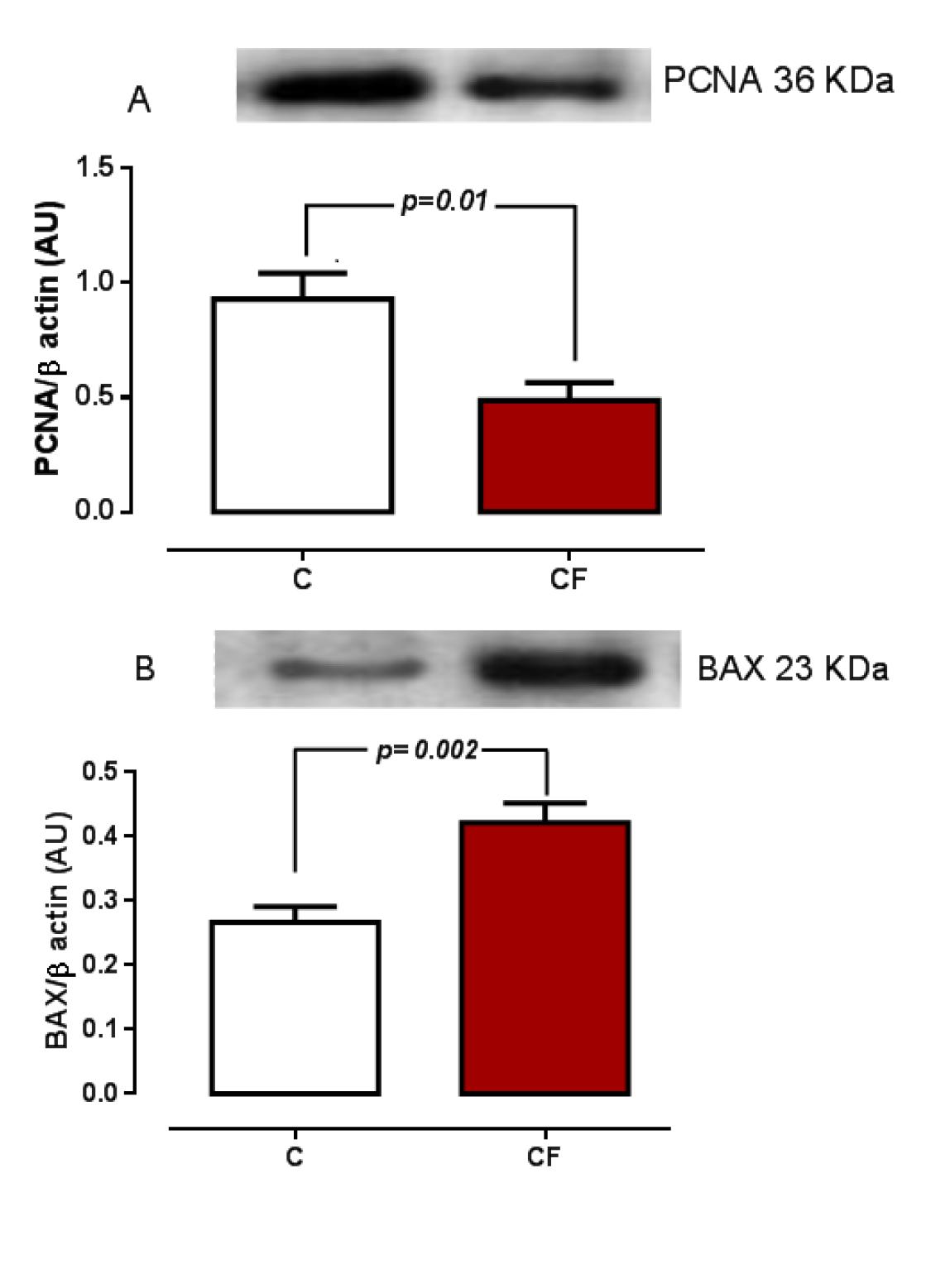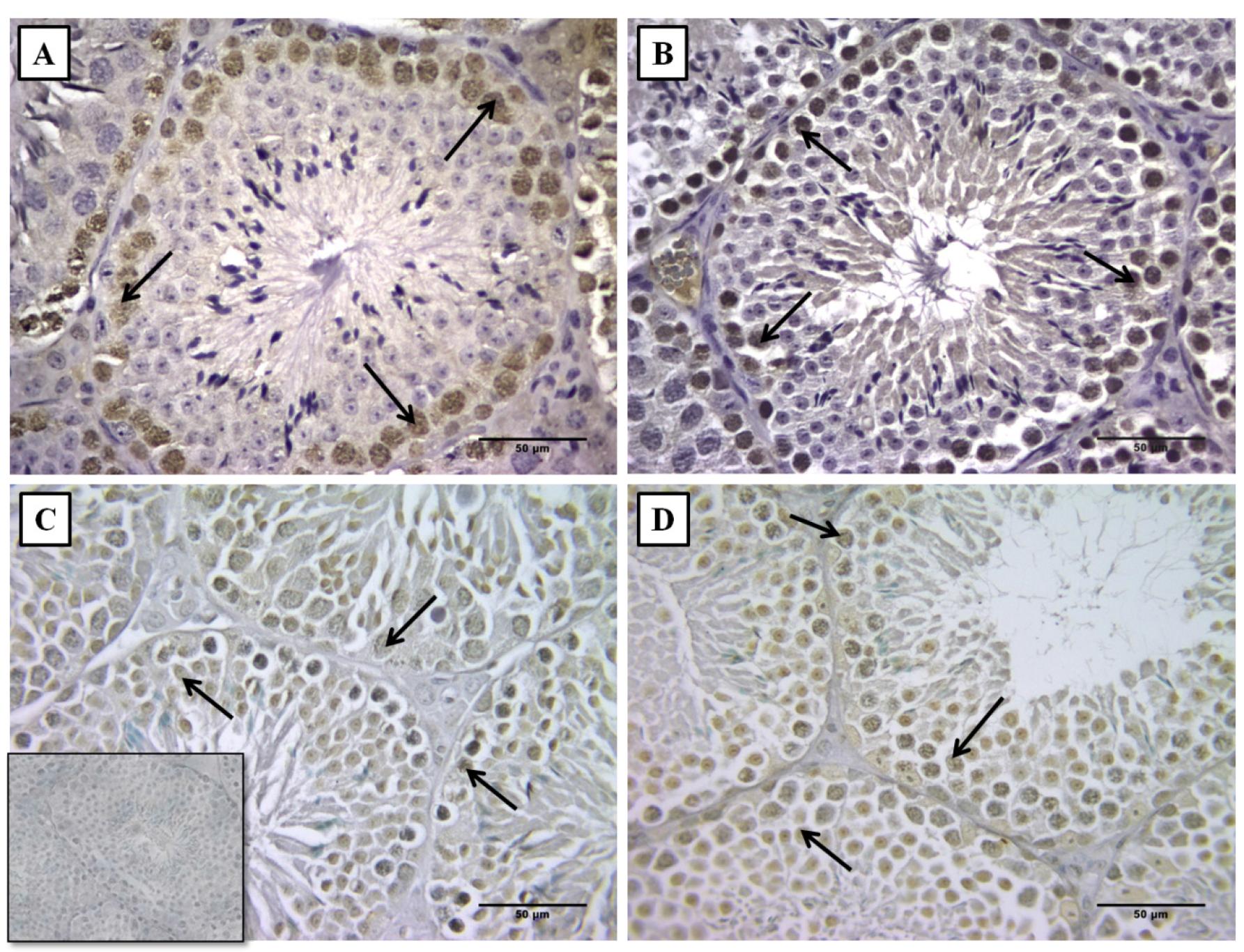PURPOSE:
To investigate the effects of the maternal caffeine consumption during pregnancy to adult male testis mice offspring.
METHODS:
Twenty pregnant mice were divided into control group (c) and caffeine group (cf). dams received daily saline or 20 mg/kg of caffeine subcutaneously. Male offspring were monitored daily until 13th week. The testis were used to evaluate both the proliferation (pcna) and apoptosis (bax); leptin receptor (ob-r); aromatase; follicle stimulating hormone (fshr), luteinizing hormone (lhr) and androgen receptors (ar); steroidogenic acute regulatory protein (star); vascular endothelial growth factor (vegf) and estrogen receptors (erα and erβ) by western blotting. Serum concentrations of testosterone, estradiol and leptin were measured.
RESULTS:
There was a significant reduction in food intake and the body mass gain (p<0.05) in the cf ; pcna (p=0.01), fshr (p=0.02), star (p=0.0007), vegf (p=0.009), ar (p=0.03) in the cf. while an increase were note in bax (p=0.01), ob-r (p=0.02), lhr (p=0.04) and in the aromatase (p=0.03) in the cf. only erα and erβ were not changed by maternal caffeine. The serum testosterone levels in the cf offspring were 90% lower than in the c offspring (p=0.04).
CONCLUSION:
Maternal caffeine consumption has a role and alters the testis of the offspring in adulthood.
Caffeine; Fetal Development; Testis; Mice





